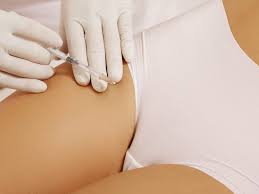In recent discussions around health and well-being, one phrase has surged to the forefront of our collective consciousness — "bad sleep." With countless individuals, especially women over the age of 35, finding themselves entangled in the frustrating web of sleepless nights, it’s become clear that this issue deserves our undivided attention. But why do women, in particular, seem to struggle more intensely with achieving restful sleep?
The answer lies nestled deep within our bodies, in the intricate and powerful realm of hormones. Hormones are the unsung heroes of our physiological well-being, orchestrating everything from our metabolism to our moods, and yes, our sleep patterns. For women, the hormonal rollercoaster doesn't just take a toll on emotional stability or physical health; it's also a significant culprit behind disrupted sleep.
The Hormonal Havoc: Why Women Face Sleep Challenges
It's crucial to understand that women's bodies are constantly in a state of hormonal flux. From the menstrual cycle to menopause, hormonal changes can wreak havoc on sleep quality. Progesterone, a sleep-promoting hormone, fluctuates throughout the menstrual cycle, typically peaking after ovulation and plummeting if pregnancy doesn’t occur, which can significantly impact sleep. Menopause brings its own set of challenges, with decreased estrogen levels leading to hot flashes and night sweats, further disrupting sleep.
This tumultuous hormonal landscape not only leaves women lying awake, staring at the ceiling at 3 a.m. but also exposes them to the risks associated with sleep deprivation, including increased stress, weight gain, and a compromised immune system.
The Misconception About Sleep Quantity vs. Sleep Quality
While the adage "you need 8 hours of sleep" is widely circulated, it’s more nuanced for women, particularly those grappling with hormonal imbalances. It's not just about the quantity of sleep but, more importantly, the quality. Achieving deep, restorative sleep is crucial for hormone regulation, which in turn, significantly impacts overall health and well-being.
Elle Sera: A Beacon of Hope
For women navigating the treacherous waters of hormonal imbalance and its ramifications on sleep, there’s a beacon of hope. Supplements Elle Sera Liposomal Magnesium Bisglycinate formulation also works synergistically with the female body to support better sleep.
Incorporating such supplements into one’s routine can be a game-changer, providing the support needed to recalibrate the body’s natural rhythms and foster a healthier sleep cycle. It’s about taking back control and stepping into a world where sleepless nights are no longer the norm but an exception.
Taking Action for Harmony and Restful Nights
For women over 35, acknowledging the critical link between sleep and their cycle is the first step toward reclaiming restful nights. Understanding that this challenge is not merely about discipline or routine but about biological and hormonal intricacies allows for a compassionate and effective approach to improving sleep.
Tackling sleep issues head-on means looking beyond the surface and addressing the underlying hormonal imbalances. Supplements like Elle Sera not only offer a targeted approach to this problem but also represent a broader commitment to women’s health and hormonal balance.
In conclusion, as we continue to explore and understand the profound connection between sleep and hormones, it’s clear that solutions lie within our reach. By prioritising hormonal balance through comprehensive strategies and supportive supplements like Magnesium, women can unlock the door to better health, improved vitality, and, most importantly, the restful sleep they rightfully deserve.



